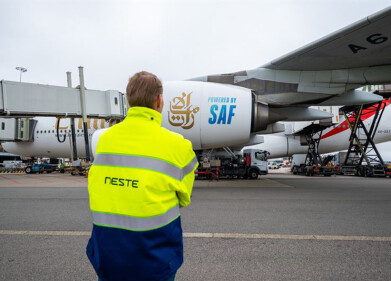Fuel for Thought
Why Are Protesters Upset over Oil’s Sponsorship of the Arts?
Apr 26 2015
Over the last 17 years, oil giants BP have donated around £3.8 million to the Tate modern gallery, which works out to roughly £224,000 on an annual basis. They are by no means the only company to sponsor the arts, with Shell and other tycoons of the industry giving money to various organisations, museums and galleries around the world.
However, a book named Artwash by Mel Evans has cast aspersions on the motives of oil companies who sponsor the arts. Evans claims that the companies are only doing so to try and achieve positive publicity in order to facilitate the extraction of oil in areas opposed to it.
Seasoned Campaigner
Mel Evans was one of the eight individuals who protested outside of the Tate gallery back in June 2010 by pouring molasses all over the entrance to a party hosted by BP at the time. Now he has penned this work on global sponsorship of the arts by oil companies in an attempt to unmask their motives as less pure than the oil they mine.
Evans claims that the oil sponsorship campaign is akin to those conducted by tobacco and arms companies and which were eventually outlawed. He wants the same thing to happen to oil sponsorship – the thinking being that if Tate accepts money from dubious sources, they too become sullied by association with whatever unethical and unenvironmental practices BP are involved in.
Evans argues that the sponsorship is a more insidious way of undermining protesters – rather than traditional outright opposition. Of course, such opposition still clearly exists, as is evidenced by the gagging of protesters by oil company Cairn Energy in 2011. However, sponsorship is seen as a more underhand and conniving way of dissipating protests against oil expansion.
Will it Have an Impact?
Evans’ claims were immediately shrugged off by members of the Tate gallery and other subsidiaries who receive money from BP. Neil MacGregor, director of the British Museum, vigorously defended BP, replying:
“What would you want companies to do with their profits? Do you want them to spend them in a way that benefits the public or not? Of course BP are doing this because they think it is good for them as well as out of a sense of corporate responsibility – but do you not want companies to exercise social responsibility by doing things that help big institutions serve the public better?”
Clearly, the public benefits from BP’s donations – but Evans is concerned they are doing the right thing for the wrong reasons. Furthermore, these wrong reasons then sully the image of the institutions which accept their money. Will his views and his words have an effect?
Well, although his book is merely one voice against the billions of pounds at the behest of BP and other oil companies, sometimes the little guy can score a victory. Late last year, residents of Denton, the Texan town where fracking was first practiced on a wide scale, voted to have it banned. The article Can Protesting Stop Fracking? Or Even Make a Dent? discusses how successful Denton residents were, and the power wielded by protesters in general.
Digital Edition
PIN 25.2 Apr/May
April 2024
In this Edition Safety - Carbon monoxide toxic and flammable gas detection Analytical Instrumentation - Density: A fundamental parameter at critical stages within the petroleum sector...
View all digital editions
Events
May 13 2024 New Orleans, LA, USA
May 14 2024 Tashkent, Uzbekistan
May 14 2024 Oklahoma City, OK, USA
May 15 2024 Lund, Sweden
May 15 2024 Copenhagen, Denmark


















